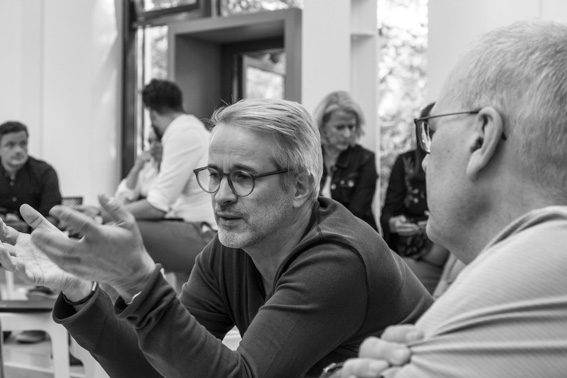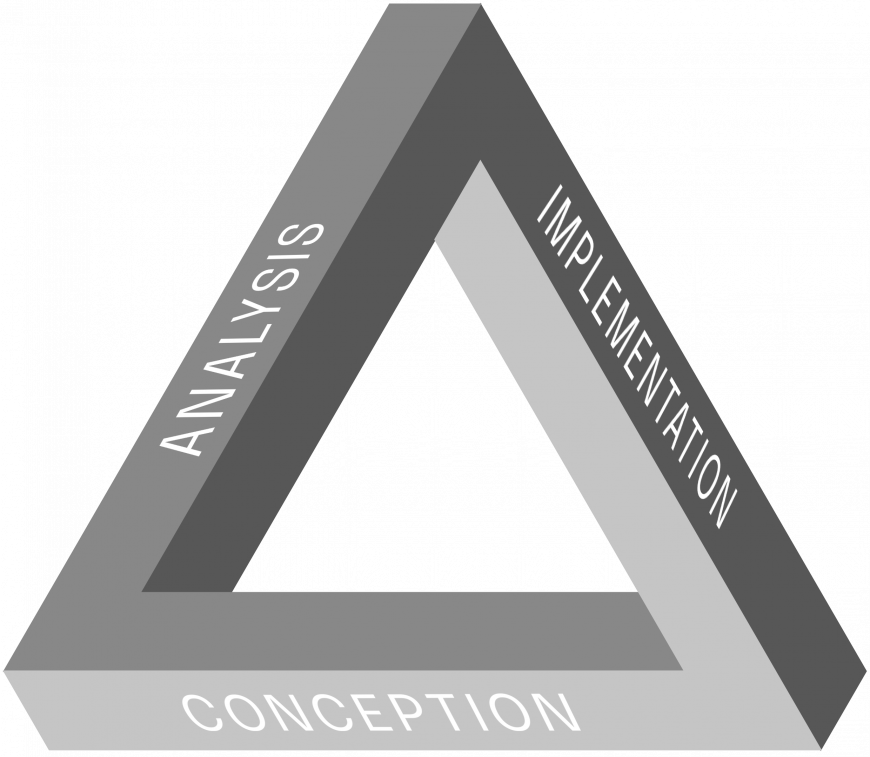Metaplan Approach
Why work with Metaplan?
Our world is saturated with organizations – We live with and work in organizations – and yet it is difficult to understand exactly how organizations function. That’s why we need language to analyze, describe and change them. We provide terminology to those who work and learn with us.
Organizations are an imposition – Organizations are man-made social systems. You decide to enter organizations and you decide to leave them again. Whoever becomes a member of an organization – whether a company, an administration, or a political party – is confronted with a variety of impositions: organizations form formal structures. These provide orientation, but also demand allegiance from the organization’s members. At the same time, these formal structures never really fit what they are supposed to shape. Often, they just get in the way.
People are smart – People react to the demands of an organization by cleverly circumventing the formal specifications and making them fit, by using “normal” disorganized behaviors in interaction and communication, and by taking the lead at critical moments in ways that step outside of the structural specifications.
Start with the circumstances, not the behavior – As consultants, we work with our clients to understand and shape the interplay between sociality and systems, which is as complex as it is exciting. To do this, we start with the circumstances, the structures, not the behavior. Our goal is not to directly change the behavior of individuals, but to create structures in which people can behave differently. We develop organizations that enable people to do their work in the best possible way – and spare them from being held personally responsible for the problems associated with organizing!
Our consulting approach assumes three principles:
1. Theory is practical – We use a broad foundation of organizational science, especially Niklas Luhmann’s systems theory. We do not apply theory in a dogmatic way; instead, we develop pragmatic approaches to solutions that are helpful and useful in specific situations.
2. Practice and theory reinforce each other – We deliberately work at the interface between scientific and management discourse; some of us work in both worlds, academically at universities and as consultants. And we have always intervened in both discourses: with scientific research projects and publications, and with pointed contributions to the current management discourse. And we convey this interplay between theory and practice in the offerings of the Metaplan Academy.
3. Transformation arises through interactions – Since our founding in 1972, we have focused on leadership and consulting in discourse. All our projects start with questions: about the particular organization, specific markets, relevant actors. Creating productive interactions – from initial conversations to extensive workshop series or management conferences – is our everyday tool of the trade, which we constantly question and develop further. The techniques of Metaplan facilitation go beyond the virtuoso handling of the Metaplan moderation interaction technique and give discourses the framework that makes them productive.



Freedom comes from making a start together – We believe that analysis, conception, and implementation are not a linear sequence. We rely on a constant exchange, so that insights, ideas and actions can simultaneously intertwine. We understand thinking as an opportunity for exploration, and then we simply try it out. In this way, thoughts can be transformed into actions at an early stage and unleash new inspiration.